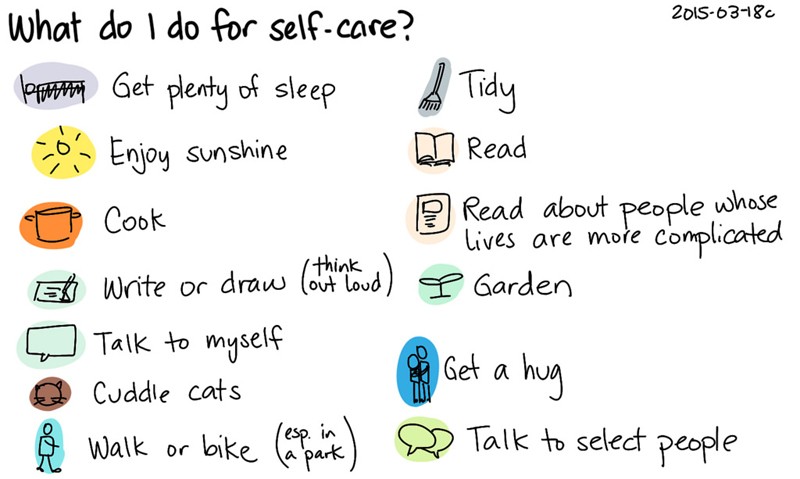Self-care Ideas For Teachers During The School Year?
Are you a teacher feeling overwhelmed and exhausted during the school year? Look no further! This article will provide you with a plethora of self-care ideas to help you recharge and maintain your well-being. From simple daily rituals to indulgent treatments, you’ll discover ways to prioritize yourself amidst the demanding responsibilities of teaching. Read on for a variety of self-care strategies that will leave you feeling refreshed, energized, and ready to conquer the challenges of the classroom.
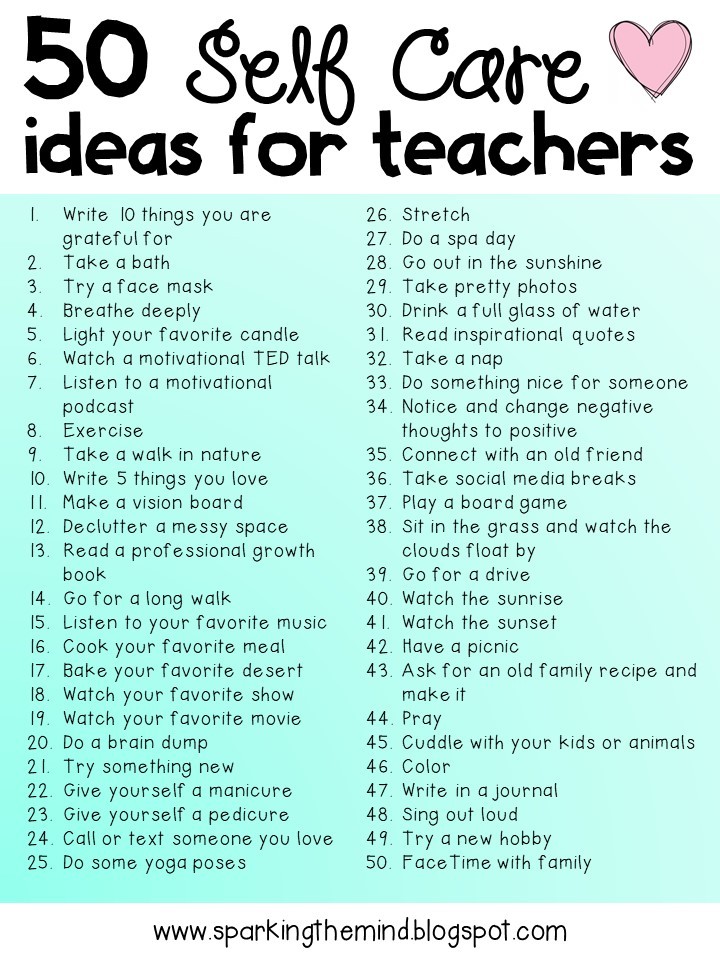
Physical Self-Care
Maintaining a Healthy Diet
Taking care of your physical well-being is crucial, especially in the demanding role of a teacher. One way you can prioritize your physical health is by maintaining a healthy diet. When you nourish your body with nutritious foods, you provide yourself with the energy and nutrients necessary to tackle your daily tasks with vigor. Incorporate a balance of fruits, vegetables, lean proteins, whole grains, and healthy fats into your meals. Avoid excessive consumption of processed foods and sugary snacks, as they can leave you feeling drained and sluggish. Remember to stay hydrated throughout the day by drinking plenty of water. By making nutritious choices and staying hydrated, you can fuel your body to perform at its best.
Getting Regular Exercise
Another essential aspect of physical self-care is engaging in regular exercise. It may seem challenging to find the time for exercise amidst your busy schedule, but even small doses of physical activity can have a significant impact on your overall well-being. Find ways to incorporate exercise into your daily routine, whether it’s taking a brisk walk during lunch break or participating in a fitness class after school hours. Exercise not only helps in maintaining a healthy weight but also aids in reducing stress, improving mood, and boosting energy levels. Prioritize your physical health by finding activities that you enjoy and regularly setting aside time for exercise.
Prioritizing Sleep
Adequate sleep is crucial for teachers, as it directly impacts our ability to focus, make decisions, and effectively engage with students. Despite the demands of the profession, it’s essential to prioritize a good night’s sleep as part of your self-care routine. Aim for seven to eight hours of uninterrupted sleep each night. Establish a consistent sleep schedule by going to bed and waking up at around the same time every day, even on weekends. Create a conducive sleep environment by ensuring your bedroom is cool, dark, and free from distractions. Engage in relaxing activities before bed, such as reading a book or taking a warm bath, to help unwind and signal your body that it’s time to rest. By prioritizing sleep, you’ll wake up feeling refreshed and ready to take on the day.
Emotional Self-Care
Practicing Mindfulness and Meditation
Teachers often face high levels of stress and emotional demands. To take care of your emotional well-being, consider incorporating mindfulness and meditation practices into your daily routine. Mindfulness involves being fully present in the moment, bringing your attention to your thoughts, feelings, and sensations without judgment. Set aside a few minutes each day to practice mindfulness, whether it’s through simple breathing exercises, guided meditations, or reflective journaling. These practices can help reduce stress, increase self-awareness, and promote a sense of calm and balance.
Engaging in Creative Outlets
Engaging in creative activities can be an excellent way for teachers to express themselves and nurture their emotional well-being. Whether it’s painting, playing a musical instrument, writing poetry, or even cooking, find an outlet that resonates with your interests and allows you to channel your emotions. Creative endeavors provide an opportunity to unwind and tap into your inner creativity. It’s important to remember that these activities don’t have to be perfect; the goal is to enjoy the process and allow self-expression without judgment or pressure.
Seeking Support from Colleagues or a Therapist
No one should navigate the challenges of teaching alone. Seeking support from colleagues or a therapist is an essential part of emotional self-care. Connect with fellow teachers who can empathize with your experiences and provide a listening ear. Share your triumphs, challenges, and worries. Often, simply talking through your emotions can provide relief and perspective. Additionally, don’t hesitate to seek professional help if you feel overwhelmed or find it challenging to cope with the emotional demands of your job. A therapist can provide a safe space to explore your feelings, develop coping strategies, and enhance your overall well-being.
Intellectual Self-Care
Continuing Education and Professional Development
Nurturing your intellectual well-being is pivotal for personal growth and professional development. Engage in continuous education and seek opportunities for professional growth within your field. Attend workshops, conferences, or webinars to learn about the latest educational trends and teaching methodologies. Explore online courses or certification programs to further enhance your knowledge and skills. By continuing to expand your intellectual horizons, you not only contribute to your own growth but also bring new and innovative ideas into your classroom.
Engaging in Hobbies and Interests
Teachers often invest a significant amount of time and energy in their work, often to the detriment of their own interests and hobbies. It’s crucial to engage in activities outside of teaching that excite and challenge you intellectually. Whether it’s reading books, learning a new language, playing chess, or solving puzzles, find activities that stimulate your mind and bring you joy. Allocating time for your passions helps maintain a healthy work-life balance and allows you to discover new perspectives that can enrich your teaching practice.
Staying Updated on Current Events and Educational Trends
As an educator, it’s essential to stay informed about current events and educational trends that may impact your teaching practice. Stay up to date with the latest research in education, follow educational blogs or podcasts, and read relevant articles. Engaging with ideas and best practices outside of your immediate classroom can broaden your perspective and inspire new approaches to teaching. By staying intellectually curious and informed, you can bring fresh insights and innovative techniques into your teaching, benefiting both you and your students.
Social Self-Care
Building and Nurturing Supportive Relationships
Building and nurturing supportive relationships is crucial for your social well-being as a teacher. Cultivate connections with your colleagues, both within your school and the wider teaching community. Attend professional development events, join teacher networks or forums, and actively engage in conversations and collaborations. These relationships provide a vital support system and a platform for sharing ideas and resources. Additionally, don’t forget to devote time to your personal relationships with friends and family outside of the teaching profession. Spending quality time with loved ones can help alleviate stress, provide emotional support, and remind you of your own identity beyond the role of a teacher.
Setting Boundaries with Students and Colleagues
In the pursuit of providing the best education for your students, it’s easy to overlook your own boundaries. Setting clear boundaries with your students and colleagues is an important aspect of social self-care. Establishing boundaries helps maintain a healthy work-life balance and prevents burnout. Clearly communicate your expectations to students, set limits on your availability outside of classroom hours, and ensure that your personal time is respected. Similarly, communicate with colleagues about your boundaries and limitations, ensuring that you have time for self-care and personal activities. By setting and enforcing boundaries, you create a more harmonious and balanced work environment.
Celebrating Achievements with Coworkers
Acknowledging and celebrating achievements is essential for fostering a positive and supportive work environment. Take the time to recognize your colleagues’ accomplishments and share in their joy. Celebrating achievements can range from a simple congratulatory message or note to organizing a shared celebration. By showing genuine appreciation and support for your coworkers, you not only uplift their spirits but also contribute to a collaborative and encouraging atmosphere within your school community.
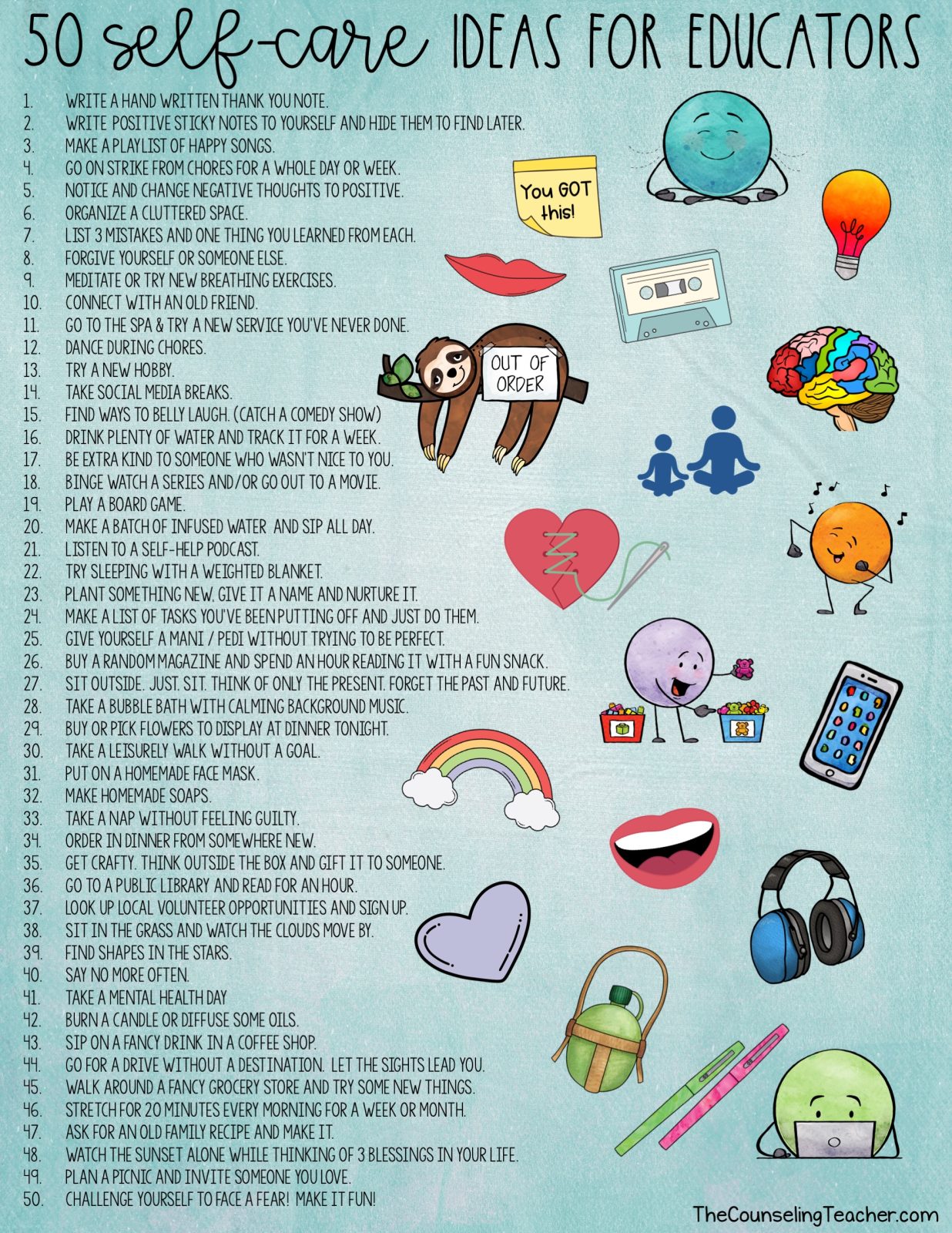
Environmental Self-Care
Creating a Positive and Organized Workspace
Your physical environment plays a significant role in your overall well-being. As a teacher, creating a positive and organized workspace can contribute to a more efficient and relaxed mindset. Take the time to declutter and organize your classroom, ensuring that it is a space conducive to learning and teaching. Create visual displays that inspire and engage your students. Personalize your workspace with items that bring you joy and motivate you, whether it’s a plant, a favorite quote, or photographs of loved ones. By cultivating a positive and organized work environment, you create a space that fosters productivity and creativity.
Utilizing Relaxation Techniques in the Classroom
Teaching can be a fast-paced and demanding profession, with little time for relaxation during the school day. However, incorporating relaxation techniques into your classroom can be beneficial for both you and your students. Consider introducing short mindfulness or breathing exercises during transition times or before high-stress activities. Teach your students techniques for self-calming and stress reduction, such as deep breathing or progressive muscle relaxation. By incorporating relaxation techniques, you create a calming and supportive atmosphere within your classroom, promoting well-being for everyone.
Taking Breaks in Nature
Nature has incredible healing and rejuvenating properties. During your teaching day, make it a point to take breaks in nature, even if it’s just a short walk during recess or lunchtime. Spending time outdoors can provide a welcome respite from the demands of the classroom and help clear your mind. The fresh air, natural surroundings, and sounds of nature can help reduce stress and increase your overall sense of well-being. Use these moments to connect with your surroundings, practice mindfulness, or simply enjoy the beauty of the outdoors. Taking breaks in nature can help you recharge and return to your teaching duties with renewed energy and focus.
Financial Self-Care
Setting and Following a Budget
Financial well-being is an important aspect of self-care for teachers. Setting and following a budget can help alleviate financial stress and ensure that you are managing your finances effectively. Take the time to evaluate your income and expenses and develop a budget that aligns with your financial goals. Track your spending habits, prioritize your needs over wants, and look for opportunities to save money. By gaining control over your finances and living within your means, you create a foundation for financial stability and peace of mind.
Exploring Additional Income Opportunities
Teachers often have various skills and talents that can be monetized outside of the classroom. Explore additional income opportunities that align with your interests and expertise. You might consider tutoring, teaching summer courses, writing educational content, or offering private lessons in your area of expertise. By diversifying your income, you can potentially increase your financial security and create more flexibility in your lifestyle.
Seeking Financial Advice and Education
Financial literacy is crucial for managing your personal finances effectively. Seek out sources of financial advice and education to enhance your understanding of money management. Attend workshops or seminars on personal finance, read books or articles, or consult with a financial advisor if necessary. By expanding your knowledge and skills in financial matters, you can make informed decisions, plan for the future, and work towards long-term financial well-being.
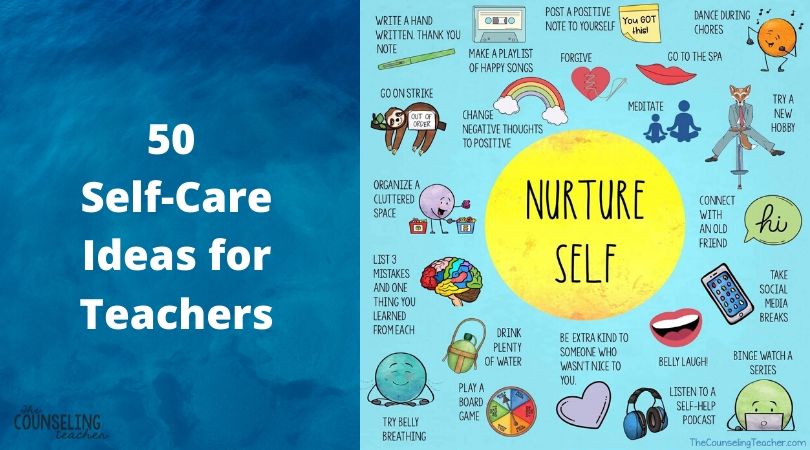
Spiritual Self-Care
Engaging in Personal Reflection and Journaling
Taking the time for personal reflection and journaling can be a meaningful practice for nurturing your spiritual well-being. Set aside a few moments each day to reflect on your thoughts, emotions, and experiences. Consider keeping a gratitude journal, where you acknowledge and appreciate the positive aspects of your life. Write down your thoughts, aspirations, and even challenges you may be facing. Engaging in personal reflection and journaling can help deepen your self-understanding, promote emotional growth, and provide a sense of peace and clarity.
Practicing Gratitude and Appreciation
Gratitude is a powerful practice that can enhance your spiritual well-being. Cultivating a mindset of gratitude involves regularly acknowledging and appreciating the blessings and positive aspects of your life. Take a moment each day to reflect on what you are grateful for, whether it’s the support of loved ones, the opportunity to educate, or the small moments of joy in your day. Express gratitude to those around you, whether through a heartfelt conversation or a kind note. By practicing gratitude and appreciation, you foster a sense of contentment and find solace in the present moment.
Connecting with Your Beliefs and Values
Connecting with your beliefs and values is an integral part of spiritual self-care. Take the time to explore and understand what matters most to you on a deeper level. Reflect on your values and consider how they align with your actions and decisions. Engage in activities that connect you with your beliefs, such as attending religious services, participating in community service, or engaging in acts of kindness. By staying connected to your core beliefs and values, you create a sense of purpose and fulfillment that reaches beyond the demands of your teaching career.
Time Management and Organization
Creating a Realistic Schedule
Managing your time effectively is fundamental for maintaining balance and reducing stress as a teacher. Creating a realistic schedule is key to maximizing your productivity and ensuring that you have time for self-care. Start by identifying your priorities and allocating specific time blocks for each task or responsibility. Be realistic about what can be accomplished within a given timeframe and avoid overloading your schedule. Make sure to include dedicated time for self-care activities, hobbies, and relaxation. By developing a realistic schedule, you can make the most of your time and avoid feeling overwhelmed.
Setting Priorities and Goals
Knowing your priorities and setting goals is essential for effective time management. Determine what tasks or responsibilities are most important to you and focus your energy accordingly. Set short-term and long-term goals that align with your personal and professional aspirations. Break down large tasks into smaller, manageable steps to prevent feeling overwhelmed. Regularly review your goals and progress, adjusting as needed. By staying focused on your priorities and working towards meaningful goals, you can maintain motivation and a sense of accomplishment.
Using Productivity Tools and Techniques
Numerous productivity tools and techniques are available to help you manage your time more efficiently. Explore various digital apps or platforms that can assist in organizing your schedule, setting reminders, and managing tasks. Consider using time management techniques such as the Pomodoro Technique, which involves working for specific blocks of time followed by short breaks. Experiment with different strategies to find what works best for you. By utilizing productivity tools and techniques, you can streamline your workflow and make the most of your time both inside and outside of the classroom.
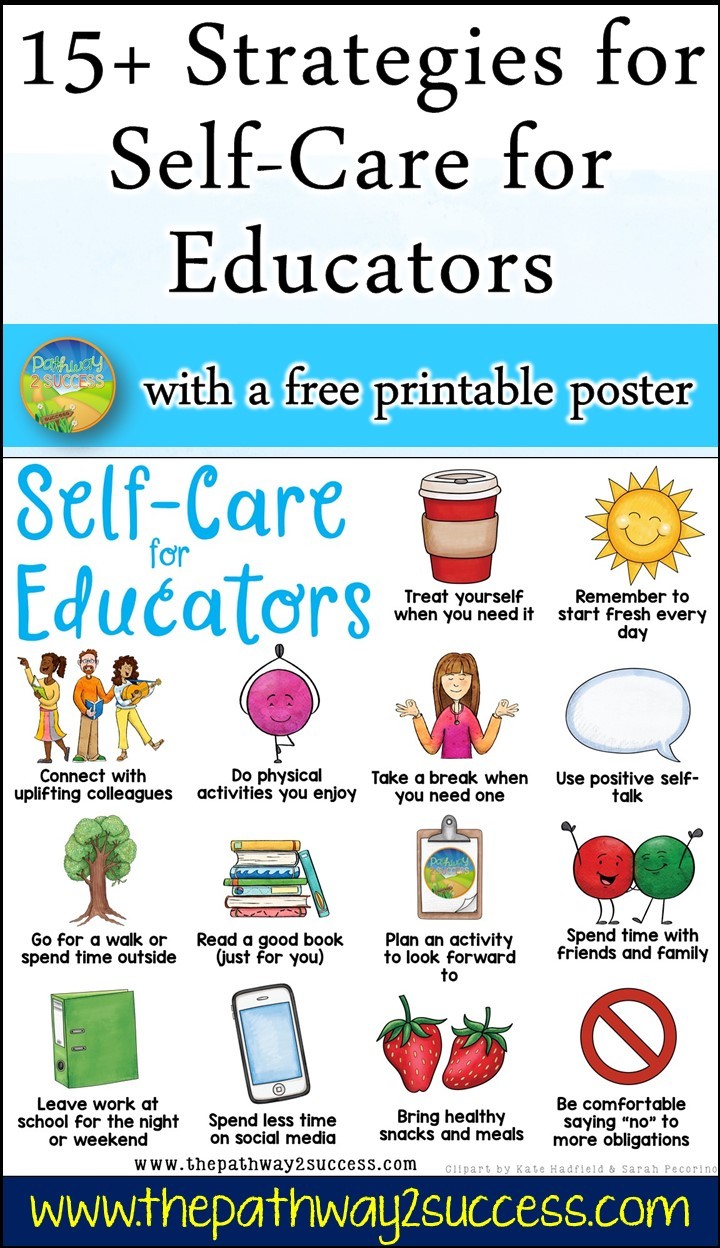
Self-Care Rituals and Relaxation
Establishing Daily Self-Care Rituals
Establishing daily self-care rituals is key to maintaining overall well-being as a teacher. Dedicate time each day to engage in activities that bring you joy, relaxation, or fulfillment. Whether it’s enjoying a cup of tea in the morning, practicing yoga or meditation, reading a book before bed, or taking a bubble bath, find rituals that nourish your mind, body, and soul. Commit to these rituals as non-negotiable parts of your day, valuing them as essential components of your self-care routine.
Practicing Relaxation Techniques
Incorporating relaxation techniques into your self-care routine is invaluable for reducing stress and promoting overall well-being. Explore different relaxation techniques such as deep breathing exercises, guided meditations, progressive muscle relaxation, or aromatherapy. Find what works best for you and incorporate these practices into your daily or weekly routine. By intentionally engaging in relaxation techniques, you can calm your mind, reduce tension, and cultivate a sense of peace and tranquility.
Indulging in Leisure Activities
Indulging in leisure activities is an essential part of self-care. Make time for activities that bring you joy and allow you to recharge. It could be reading a book, going for a hike, dancing, playing a musical instrument, or engaging in any other hobby that resonates with you. Schedule regular leisure activities into your routine, ensuring that you have dedicated time for yourself and for doing things that bring you pleasure. By indulging in leisure activities, you inject more joy and fulfillment into your life, promoting a healthier work-life balance.
Self-Care for Summer Break and Vacations
Planning Restful and Rejuvenating Activities
Summer breaks and vacations provide a perfect opportunity to indulge in restful and rejuvenating activities. Plan activities that allow you to relax, recharge, and focus on your well-being. Whether it’s taking a beach vacation, embarking on a staycation, or simply spending quality time with loved ones, prioritize activities that bring you joy and promote relaxation. Use this time to catch up on sleep, engage in hobbies, read for pleasure, or explore new experiences that you’ve been longing to try. By intentionally planning restful and rejuvenating activities, you can make the most of your time away from the demands of the school year.
Disconnecting from Work Emails and Responsibilities
During summer breaks and vacations, it’s essential to disconnect from work emails and responsibilities. Create boundaries around your time off and resist the urge to constantly check in or respond to work-related matters. Allow yourself the freedom to fully enjoy your time away from the classroom and prioritize your well-being. Instead, focus on activities and experiences that bring you joy, fulfillment, and relaxation. By disconnecting from work emails and responsibilities, you create a much-needed break from the demands of the school year, allowing yourself to return refreshed and rejuvenated.
Exploring New Destinations and Experiences
Summer breaks and vacations present an excellent opportunity to explore new destinations and experiences. Use this time to indulge your sense of adventure, discover new cultures, or engage in activities that inspire and invigorate you. Whether it’s traveling to a foreign country, exploring your local surroundings, or trying a new hobby, embrace the opportunity to expand your horizons and step outside of your comfort zone. By seeking out new destinations and experiences, you provide yourself with the chance to create lasting memories and stimulate personal growth.
In conclusion, as a teacher, it is crucial to prioritize self-care in all aspects of your life. Taking care of your physical, emotional, intellectual, social, environmental, financial, spiritual well-being, managing your time effectively, and engaging in self-care rituals and relaxation activities are all integral to your overall health and happiness. By incorporating self-care practices into your daily routine and making time for rest and rejuvenation, you are not only enhancing your own well-being but also setting an example for your students and colleagues. Remember, you deserve to prioritize your own self-care, so that you can continue making a positive impact in the lives of others.
